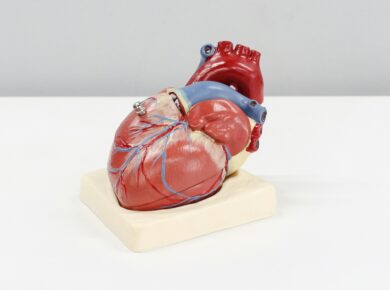Stress can have several effects on human wellness. Human beings experience different stressors in their day-to-day life, which are managed without any recourse to the body. Severe stress might have some adverse effects on the physical and mental functioning of the human body. These effects may have indelible marks on the life of an individual that may affect his/her interpersonal relationships and lead to daily struggles.
1. Effects of Stress
Below are some of the effects of stress on people.
Physical Illness: Stress can cause different kinds of ailments in the body, such as headaches, asthma, high blood pressure, peptic ulcer, tension, and migraine. It can also result in diseases, diabetes, stroke, multiple sclerosis, hair obesity, tooth and gum disease, and other infectious diseases that are detrimental to human health.
2. Low Level of Track Performance
Stress can diminish one’s strength and make them unable to perform optimally. Some people may even become unconscious; this can disrupt their attention and reduce their level of performance.
Burnout: This involves physical and emotional exhaustion that is traceable to work-related stress. In some cases, while some stress may lead to feelings of anxiety and frustration, prolonged stress can lead to burnout. This causes an individual to experience general body weakness, have a negative attitude about oneself, low energy, and declining feelings of competence at work.
Psychological Problems: Psychological problems as a result of stress can come in the form of poor academic performance, addiction to drugs or drug abuse, insomnia, depression, and sexual disturbances. Stress due to psychological problems can lead to disorders such as eating disorders, anxiety, sleep disorders, mood disorders, and schizophrenia.
Disruption of Cognitive Functioning: Stress can also affect other aspects of memory functioning, interpretation of issues, decision-making, and concentration. Situations like these make an individual distracted, anxious, nervous, and irritable, neglecting self-care.
3. Relationships
Stress manifests in relationships. Sometimes, it comes from problems at work, in the family, or with friends. A couple may have an argument relating to differences in wants or needs, or feeling neglected, much can be harmful to relationships.
At times, people bottle up their stress, which makes it difficult for their partners to understand what they are going through and provide support. Not dealing with stress can create a negative cycle where the partner“catches” each stress.
This“catch” happens because stress is contagious when our partners are stressed, and we become stressed. Think about an argument that escalated quickly; you might have “caught” one another’s stress during the argument, which made you both flare up and say things you would not have ordinarily said. Couples get stuck in this negative cycle and may be too stressed to deal with the underlying issue(s).
4. Workplace
There are various effects of stress in our workplaces; a few are listed below:
- High level of absenteeism
- High labour turnover
- Poor timekeeping
- Poor performance and productivity
- Low morale
- Poor motivation
- Increased employee complaints
People deserve to live stress-free lives, even in workplaces. They need working conditions that are health-friendly. Their physical and mental health should not be toyed with, as their state of health, whether physical or mental, will affect their input and productivity.
5. Managing Stress
Stress management takes different forms, knowing full well that there is no single or specific treatment for it. Management and treatment focus on developing coping skills through different interventions to change the situation, as well as treating conditions caused by chronic stress.
Treatment of Stress: Any long or short-term stress issue should be handled with care and seriousness so as not to compound the existing problem. Healthcare providers should be consulted for some treatment options for stress. Treatment of stress provides avenues for applying some available interventions to address the situation. The following are used to treat some of the symptoms of stress:
Medication: Medications are prescribed to address some specific symptoms related to stress. These may include antidepressants,anti-anxiety, sleep aids, antacids, and so on. These are medications prescribed by a doctor. It will help the victim to have enough time to relax and regain strength.
Therapy: Therapy helps to address some symptoms of stress. This would help the victim identify what triggers the stress and address the underlying factors contributing to stress. It will also help to change some negative thought patterns, or reduce stress levels.g.Cognitive Behavioural Therapy (CBT) and Mindfulness-Based Stress Reduction(MBSR), and to change an individual’s response to stress in the future.
Complementary and Alternative Medicine: Complementary approaches may be used to reduce stress. These include massage, aromatherapy, acupuncture, and meditation.
6. Techniques for Stress Management
Having established that stress is inevitable in life, it can be managed. It can be tackled before it becomes overwhelming through the following strategies:
Take care of yourself: Timely and regular care of the body, mind, and soul provides succour for living peacefully and achieving the best in life. Regular self-care activities should be incorporated into one’s life for healthy living. Always eat a balanced diet and get enough rest.
Get regular exercise: Engaging in regular physical exercise will help stimulate the body and put it in good shape. This includes engaging in extracurricular activities, short walks, indoor exercises and games, and so on.
Recognise burnout signs early: Burnout is an indication that the body is emotionally exhausted. This is a moment to pay attention to the workings of the body’s systems before they degenerate into a serious challenge to the body’s wellness.
Practice a positive outlook: A positive outlook should be a way of life, ie must avoid tension in the body. There is a need to think positively and appreciate one’s areas of strength. This will provide the right avenue to discover how to live mentally and emotionally healthy lives with less stress.
Avoid alcohol and caffeine intake: People who consume alcohol or other beverages with caffeine are prone to stress. The concentration of various chemicals that those beverages contain is an issue. Believers in Christ should avoid taking alcohol; it is against our beliefs as Christians.
Connect with people who can provide support: Connecting with the right people is another way of managing stress. Be connected to those who can provide timely help and emotional support. These include friends, family members, and religious bodies. Having people like these around provides a platform for healing and wholeness in times of stress.
Conclusion
The negative effects of stress can be overwhelming. This awareness serves as an eye-opener to all believers, to be able to take care of themselves in good time. God loves us so much that He has provided us with all that is needed to stay healthy. Individuals need to exercise caution in the way and manner they use their devices to avoid unnecessary tension in the body. Stress should be reduced to the barest minimum for the body to function optimally and productively.
Stress is a reality of life that human beings must face. Therefore, it is important to value some of the various coping options we have been taught to tackle it. When stress is identified on time, it can be managed. If you want to reduce the stress in your life, adhere to the promise of God in Philippians 4:6-13, which says, “Cast your entire care, God, because He cares for you”. Read further on this page.










